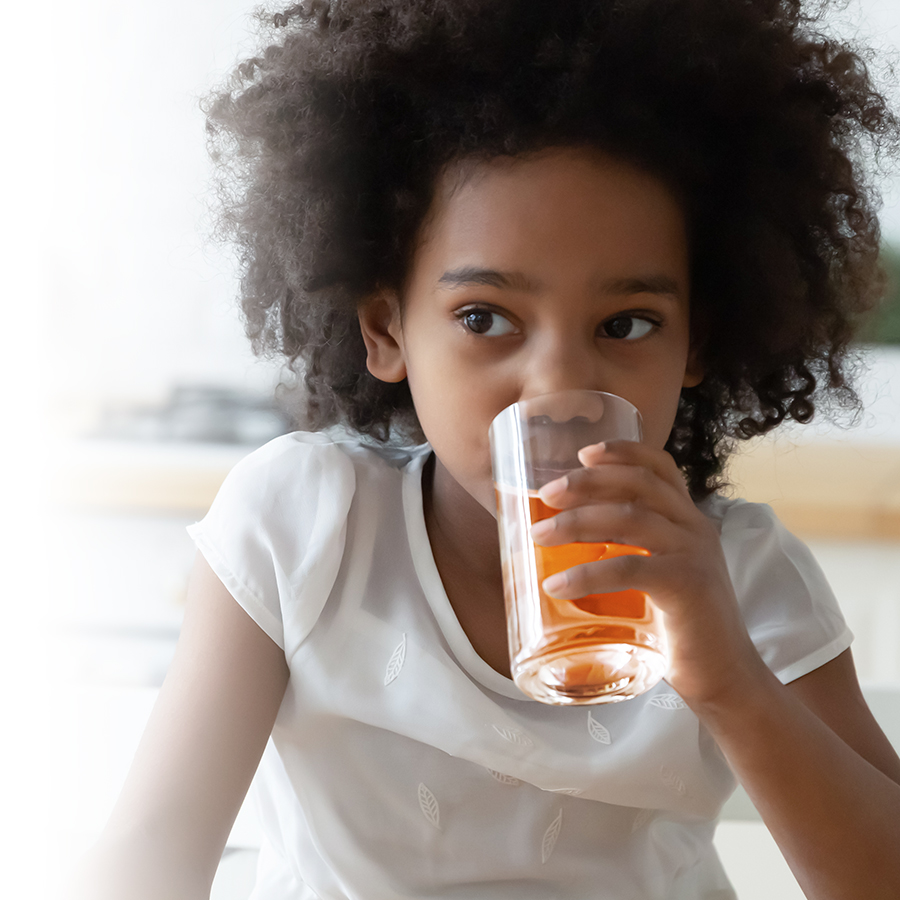Proper hydration is crucial for babies and children. How can the risk of dehydration be reduced in this more vulnerable population?
How important is it to keep toddlers hydrated?
Dehydration remains one of the leading causes of morbidity and mortality in children of all ages worldwide. Toddlers need proper care from responsible adults under favourable conditions for their well-being and survival. This is an ongoing challenge in some parts of the world. In North America, keeping a child hydrated may seem like a trivial matter, but in reality it should never be taken for granted.
Dehydration results either from insufficient fluid intake, fluid loss, or a combination of both. The body then lacks water and electrolytes. Infants, for example, have higher baseline fluid needs, partly because of increased metabolism. Additionally, they cannot express or satisfy their own thirst. Also, because of their higher body surface area-to-volume ratio, they are much more vulnerable to the serious consequences of dehydration than adults. The risks are even greater for infants under the age of six months.
What are the most common risk factors for dehydration?
There are many causes of dehydration in the pediatric population. In Canada, the most common is gastroenteritis, a mostly viral infection that manifests itself as nausea, vomiting or diarrhea. These are often the symptoms that lead to dehydration, regardless of their underlying cause (food intolerance or poisoning, side effects of a medication, digestive problems, etc.).
Here are some other factors or situations that can lead to dehydration
- high fever
- difficulty breastfeeding, refusal to feed or malnutrition
- overexposure to heat (e.g., heat stroke)
- excessive sweating
- burns
- severe infection (e.g., pneumonia or meningitis)
- chronic illness (e.g., diabetes, kidney disease, cystic fibrosis)
- etc.
What are the signs and symptoms of dehydration in children?
Here are some examples of signs and symptoms of dehydration in babies or children:
- increased thirst
- depressed or hollow fontanel (soft space on the head)
- weight loss
- dark urine
- decreased or absence of urine in the diaper
- lack of tears
- sunken eyes
- dryness of the mucous membranes
- Pallor or discoloration of the skin
- skin folds
- lethargy or drowsiness
- irritability
- etc.
In the most severe cases, the following may occur:
- accelerated heart rate
- low blood pressure
- rapid breathing
- ltered consciousness
- convulsions
- state of shock
- etc.
Even today, toddlers die from dehydration. That's why it should be taken seriously.
How is dehydration treated?
Treatment begins with restoring fluid balance by ensuring adequate water and electrolyte intake. In milder cases, this can be done by administering oral rehydration solutions at home. It is important to note that contrary to popular belief, juices and soft drinks are not good choices for restoring hydration in either children or adults.
Oral rehydration solutions are available at pharmacies and come in a variety of formats: ready-to-drink solutions, powders, effervescent tablets or popsicles. If you're a parent, it's a good idea to get some in advance so you're ready when you need it. When the time comes, it's important to follow the manufacturer's instructions carefully, as well as those of your pharmacist, doctor or nurse. It is always best to seek the advice or care of a healthcare professional to prevent or treat dehydration.
Moderate to severe cases most often require more rigorous care and even hospitalization. Intravenous fluids may be required as soon as possible. With proper care, dehydration can resolve fairly quickly, within hours or days. This largely depends on the speed and quality of the treatment. If there is any doubt that your child has severe dehydration, it is best to go to the hospital immediately.
How can dehydration be prevented?
The best way to prevent dehydration is to eliminate its causes. Here are some tips to help you do that.
- Make sure your toddler is drinking enough (water or milk, depending on age and needs) and eating well.
- Focus on infection control, including frequent handwashing.
- Keep your child out of the heat or sun. Babies under the age of six months should never be exposed to it.
- See a healthcare provider promptly if your child is vomiting or has diarrhea. If you have reason to believe your child is at risk of dehydration, don't delay in starting rehydration measures.
Speak to your pharmacist for additional information on dehydration, prevention and treatment.

